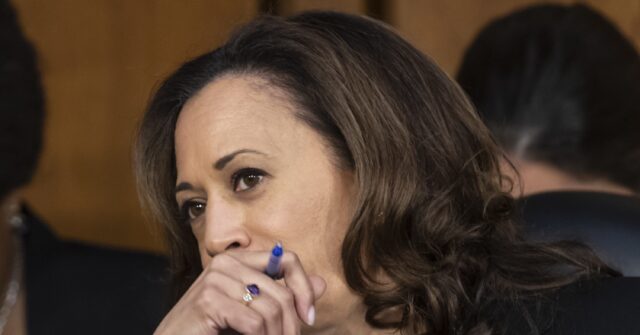The New York Times recently acknowledged that Vice President Kamala Harris plagiarized multiple sections from her 2009 book, “Smart on Crime.” This revelation resulted from a report by conservative journalist Christopher Rufo, which relied on findings by Dr. Stefan Weber, a prominent Austrian plagiarism expert. Despite confirming that instances of plagiarism were present, The Times attempted to downplay the issue by suggesting that the copying was not significant in relation to the overall length of the book, which contains approximately 65,000 words.
The Times emphasized the volume of copied material, which comprised around 500 words, marking it as a small part of Harris’s work. The controversy revolves around five passages revealed by Rufo, who mentioned that while the phrases featured in the book were not derived from other authors’ ideas, the lack of attribution for descriptive programs or statistical information was sufficient for it to be classified as plagiarism. A consultant, Jonathan Bailey, also expressed the opinion that the nature of Harris’s errors was not severe when viewed in the broader context of the document’s size.
In addition to the direct issue of plagiarism, The Times’s reporting also shifted focus away from Harris and towards Rufo himself. They highlighted a narrative suggesting Rufo was part of a conservative group that had previously targeted Black scholars focused on diversity and inclusion, framing this as potentially racially motivated criticism. This commentary came in light of predictions from various commentators, like Sen. JD Vance, who anticipated a media trend of defending Harris and minimizing the impact of the plagiarism claims.
Critics of Harris’s actions pointed out that some of the copied passages were sourced from Wikipedia, which is not generally regarded as a credible reference. The discussion raised questions about the standards of attribution Harris applied during her writing process. The phenomenon of omitting or failing to accurately reference sources has typically been categorized as plagiarism in journalistic standards, further complicating Harris’s defense amidst rising scrutiny.
The revelation about Harris’s plagiarism garnered mixed responses across the media landscape, with some conservative outlets preemptively suggesting that mainstream media would either overlook the issue or frame it as a constructed controversy. This response illustrates the intense political polarization surrounding figures like Harris, where the implications of such an incident can be seized upon to bolster partisan narratives.
As the discourse continues to unfold, it becomes apparent that the implications of this plagiarism issue extend beyond the individual case of Harris. It reveals underlying tensions within the political landscape regarding academics, political figures, and the standards of integrity expected in both literature and discourse. With various viewpoints in play, the incident demonstrates how acts of plagiarism can morph into larger discussions about accountability and credibility in public life.

